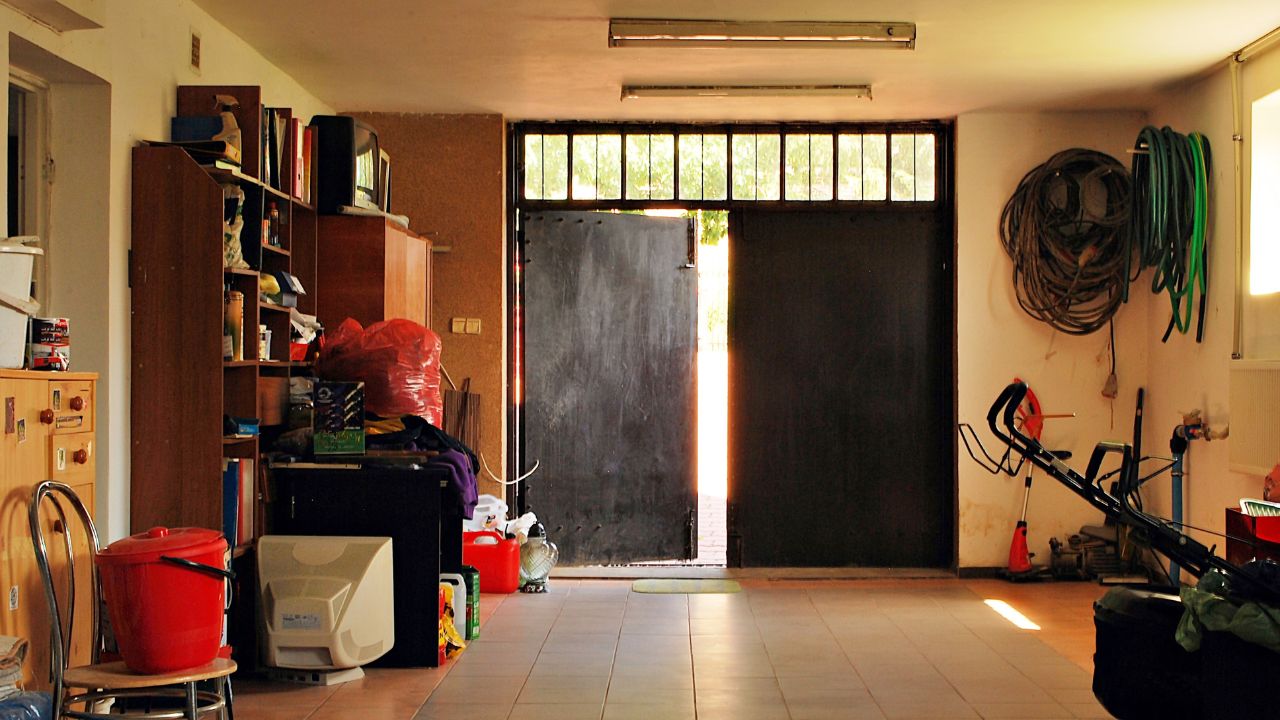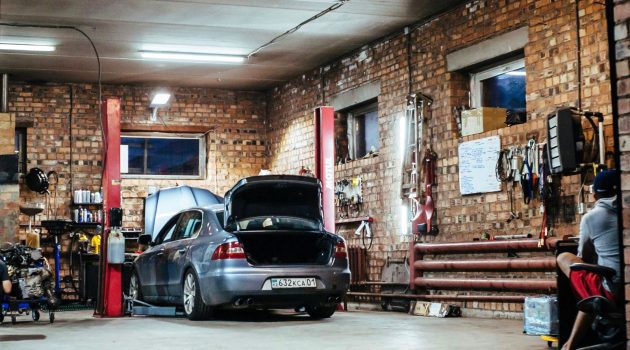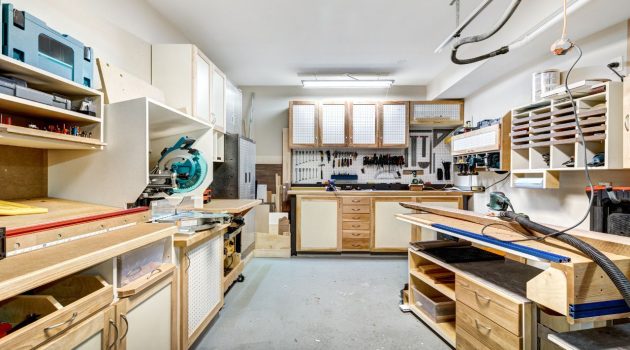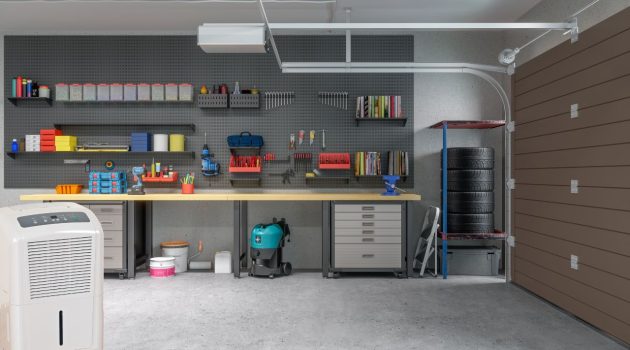Living in a garage might seem like a creative housing solution, but it’s often illegal and unsafe. If you’ve noticed someone living in a garage near you, it’s important to take action. You can report someone living in a garage by contacting your local code enforcement agency. These agencies handle issues related to building codes and zoning laws.
You might feel unsure about reporting your neighbors. But remember, this is about safety. Garages aren’t designed for people to live in. They often lack proper ventilation, heating, and fire safety features. By reporting, you’re looking out for everyone’s wellbeing.
When you contact code enforcement, give them the address and describe what you’ve seen. They’ll investigate and take appropriate steps. If you’re worried about staying anonymous, ask if you can make the report without giving your name. Your call could help keep your neighborhood safe and livable for everyone.
Understanding the Issue
Living in a garage can be unsafe and illegal. It’s important to know why this is a problem and what rules apply.
Legal Implications of Garage Habitation
Garages are not meant for people to live in. They often lack proper heating, plumbing, and ventilation. This makes them unsafe for living. Most cities have rules about what makes a space “habitable.” Garages usually don’t meet these standards.
Building codes set requirements for living spaces. These include things like minimum room sizes, ceiling heights, and emergency exits. Garages typically don’t have these features.
To legally live in a garage, it needs to be converted into a proper living space. This requires permits and inspections. The owner must make sure it’s up to code. Without these steps, living in a garage is against the law.
You might wonder if you should report someone living in a garage. It’s a tough choice, but it could help keep people safe. Unsafe living conditions can be dangerous. By speaking up, you might help someone find better, safer housing.
When to Report
Knowing when to report someone living in a garage is key. It’s about balancing safety concerns with respect for others. Let’s look at two important aspects to consider.
Identifying Safety Concerns
Look for signs that the garage living space might be unsafe. Check if there’s proper ventilation. Poor air flow can lead to mold or harmful fumes. Make sure there are working smoke detectors and fire exits.
Watch for risky electrical setups. Extension cords running everywhere can be a fire hazard. Lack of proper heating or cooling is another red flag. People shouldn’t be too hot or too cold.
Check if there’s a bathroom and running water. These are basic needs for health and hygiene. If you spot any of these issues, it might be time to report.
Recognizing Unsanctioned Tenants
Pay attention to unusual activity around the garage. Do you see people coming and going at odd hours? This could mean someone’s living there without permission.
Listen for sounds of daily living, like TV or music. Look for personal items or laundry hanging outside. These are clues that the garage has become a home.
If you’re a landlord, check your property often. Make sure no one has moved into spaces not meant for living. Renters, if you notice new “neighbors” in the garage, tell your landlord.
Remember, reporting is about helping people find safe, legal homes. It’s not about getting anyone in trouble.
How to Report
Reporting someone living in a garage requires contacting the right people and providing key details. Here are the steps to take when making a report.
Contacting the Appropriate Authorities
Your local code enforcement agency is usually the best place to start. Look up your city or county’s building inspection or zoning department online. You can also call the non-emergency police number for guidance.
The health department may get involved if there are sanitation issues. They can check for health code violations.
Don’t call 911 unless there’s an immediate danger. This situation typically isn’t an emergency.
Keep your report factual and avoid making accusations. The authorities will investigate and decide if action is needed.
Consulting a Lawyer
You might want to talk to a lawyer before reporting. They can tell you about your rights and any risks.
A lawyer can explain local housing laws and what counts as illegal living spaces. They may also know the best way to report in your area.
If you’re worried about staying anonymous, a lawyer can help protect your identity. They might even be able to make the report on your behalf.
Legal advice isn’t always needed, but it can give you peace of mind.
Providing Essential Information
When you make your report, give as many details as you can. Include:
- The exact address
- How long you think someone’s been living there
- Any safety concerns you’ve noticed
- Descriptions of noise or other disturbances
If possible, provide:
- Photos of the garage (from public areas only)
- Dates and times you’ve seen people going in or out
- License plate numbers of cars parked there
Be ready to give your contact info, but ask if you can remain anonymous. The more info you provide, the easier it is for authorities to check things out.
Potential Consequences

Reporting someone living in a garage can lead to serious outcomes. The property owner may face legal trouble and hefty fines. The person living there could be forced to move out.
Legal Actions and Fines
You should know that living in a garage without proper permits often breaks building codes. Cities take these violations seriously. They might fine the property owner hundreds or even thousands of dollars.
The city could order the garage to be changed back to its original use. This means the person living there would need to find a new home.
In some cases, the authorities might declare the garage unsafe for living. This could happen if it lacks proper exits, ventilation, or sanitation.
The owner might have to pay to fix these issues. They may also need to get the right permits, which can be costly and time-consuming.
If the situation isn’t fixed, the city could take the owner to court. This might result in even bigger fines or legal problems.
Support and Resources
Dealing with someone living in a garage can be tough. There are groups and options that can help both you and the person in need. Let’s look at some ways to get support and find better solutions.
Seeking Help from Community Organizations
Local groups often have resources to help. Food banks can provide meals. Clothing drives offer warm clothes. Some organizations give out hygiene items too. You can call 211 to find services in your area. Many cities have task forces for homelessness. They can give advice on next steps.
Churches and non-profits may offer temporary housing. Some run day centers where people can shower and do laundry. Legal aid groups can explain housing rights. Mental health clinics provide counseling and treatment. Reaching out to these groups can make a big difference.
Finding Alternative Solutions for Homelessness
There are options besides living in a garage. Local shelters offer a safe place to sleep. Some have programs to help people find jobs. Transitional housing gives a longer-term place to stay. You can look into low-income apartments too.
Some cities have tiny home villages for the homeless. Others convert unused buildings into housing. Rapid rehousing programs help people get back on their feet fast. Job training can lead to stable work and income. Substance abuse treatment may be needed in some cases.
Talk to social workers about housing vouchers and rental assistance. They can also help with benefit applications. The goal is to find a legal, safe place to live.



